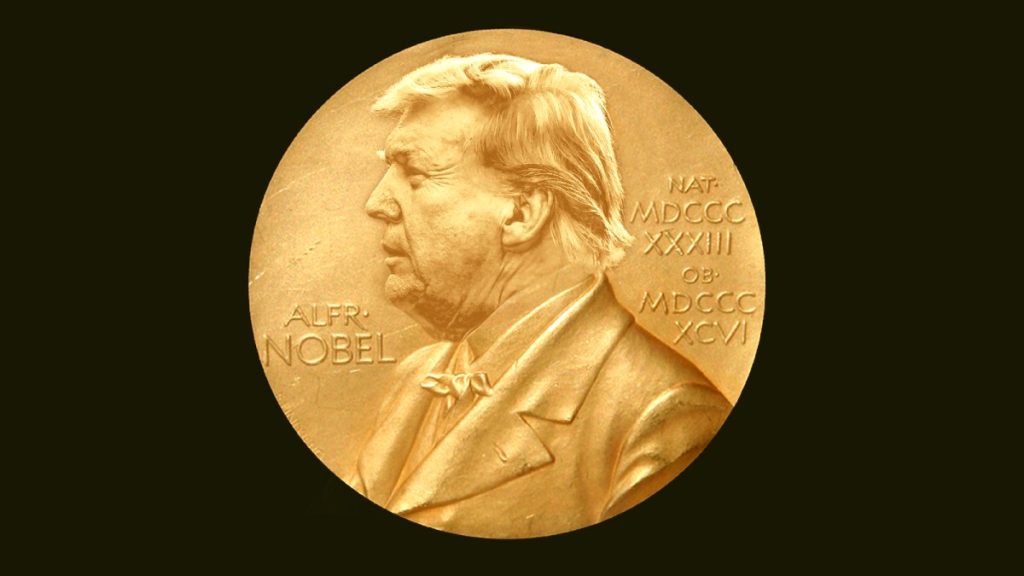Listen to the article
Donald Trump’s recent claims about ending eight wars during his presidency have sparked a wave of scrutiny from political analysts and fact-checkers across the media landscape.
At a campaign rally in Grand Rapids, Michigan last week, the former president boldly stated, “We ended eight wars that were horrible, horrible wars. We didn’t start one war,” drawing enthusiastic applause from supporters. Trump has repeatedly emphasized his record as a peacemaker rather than a warmonger, positioning himself in stark contrast to the Biden administration.
However, an examination of Trump’s four years in office reveals a more nuanced reality than his statements suggest. While his administration did pursue diplomatic initiatives in several regions, experts question whether his claims about ending eight conflicts can be substantiated.
During his presidency, Trump initiated a significant drawdown of U.S. troops in Afghanistan through negotiations with the Taliban. The February 2020 Doha Agreement set the stage for American withdrawal, though the complete exit occurred under President Biden in 2021—with chaotic consequences that both parties continue to debate. While Trump began the process, historians note that characterizing this as “ending” the war during his term stretches the timeline of events.
Trump also reduced American military presence in Syria and Iraq, though neither conflict conclusively ended during his administration. U.S. forces remain deployed in both countries today, albeit in smaller numbers. The territorial defeat of ISIS, which Trump frequently cites as an achievement, represented a significant milestone but did not mark the complete resolution of either complex regional conflict.
In North Korea, Trump’s unconventional approach to diplomacy included direct meetings with Kim Jong Un—becoming the first sitting U.S. president to meet with a North Korean leader. These summits generated headlines and temporarily reduced tensions, but they failed to achieve denuclearization or a formal peace treaty to end the technically ongoing Korean War, which has remained in armistice since 1953.
The Trump administration also brokered the Abraham Accords, normalizing relations between Israel and several Arab nations including the UAE, Bahrain, Sudan, and Morocco. While this diplomatic achievement improved regional cooperation, it did not resolve the Israeli-Palestinian conflict, which continues today with renewed intensity.
Foreign policy experts note that Trump’s “America First” doctrine did succeed in avoiding new large-scale military interventions during his presidency. However, his administration conducted significant military operations, including the January 2020 drone strike that killed Iranian General Qasem Soleimani—an action that briefly elevated U.S.-Iran tensions to their highest point in decades.
Dr. Elizabeth Saunders, Professor of International Relations at Georgetown University, explains: “Presidents often seek to frame their foreign policy legacies in the most favorable light. While the Trump administration certainly adjusted America’s military footprint in several regions, the claim of ending eight distinct wars doesn’t align with the historical record.”
The confusion may stem partly from how conflicts are defined. Modern military engagements often lack formal declarations of war and clear endpoints, instead evolving into prolonged counter-terrorism operations or frozen conflicts with occasional flare-ups.
Trump’s campaign has not provided a specific list of the eight wars he claims to have ended when pressed by journalists. Some supporters suggest he may be including smaller-scale operations or referring to potential conflicts he believes were averted through his diplomatic approach.
The former president’s peace claims come as foreign policy emerges as a critical election issue amid ongoing conflicts in Ukraine and Gaza. Trump has positioned himself as the peace candidate, frequently criticizing the Biden administration’s handling of international crises and suggesting that global tensions would diminish under a second Trump presidency.
As the campaign intensifies, voters face the challenge of distinguishing between political rhetoric and the complex realities of America’s global military engagements—a distinction that will likely remain contentious through Election Day.
Fact Checker
Verify the accuracy of this article using The Disinformation Commission analysis and real-time sources.




8 Comments
This is a timely and important fact check. Ending conflicts is a noble goal, but the details matter. I appreciate the balanced approach, looking at both Trump’s claims and the experts’ analysis of the reality on the ground during his presidency.
As someone interested in geopolitics and foreign policy, I find this analysis of Trump’s war-ending claims to be quite thought-provoking. It’s clear the situation is more nuanced than simple declarations of victory. I look forward to seeing how this debate evolves.
As someone who follows geopolitical and foreign policy issues closely, I found this fact check to be a refreshingly nuanced and balanced take on Trump’s claims about ending wars. It’s a good reminder that reality is often more complex than political rhetoric.
This fact check is a valuable contribution to the ongoing discussion around Trump’s foreign policy record. While the desire for peace is commendable, the details matter, and this analysis helps provide a more complete picture.
This fact check highlights the importance of scrutinizing political claims, especially when it comes to matters of war and peace. Ending conflicts is a noble goal, but the details and consequences deserve careful examination. I appreciate the depth of analysis provided here.
Trump’s claims about ending eight wars are certainly bold, but this fact check rightly highlights the need to examine the details and context. Withdrawing troops is a significant decision with lasting impacts that deserve rigorous analysis beyond just the headline-grabbing statements.
This fact check provides a valuable perspective on the complex realities of ending wars versus political rhetoric. While the desire for peace is understandable, the details and consequences of troop withdrawals deserve careful scrutiny. I’m glad to see this issue being explored in depth.
It’s interesting to see Trump’s claims about ending wars fact-checked. Withdrawing troops is complex, with diplomatic and on-the-ground realities to consider. I’m curious to learn more about the nuances behind his statements and the ongoing debate around the Afghanistan withdrawal.